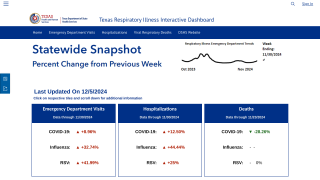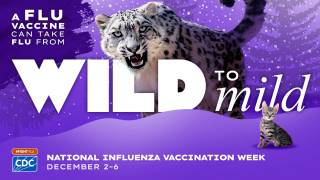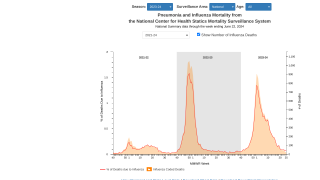NanoFlu Influenza Vaccine Delivers More Good News For Seniors

The top-line results of Phase 2 clinical trial of NanoFlu, an influenza vaccine candidate, were announced today by Novavax, Inc., in a press release.
This clinical trial compared the safety and immune responses of various quadrivalent formulations of NanoFlu, with or without Novavax’ Matrix-M™ adjuvant, with 2 licensed influenza vaccines.
And this study’s results look very positive.
Which is good news for seniors seeking protection from the ever-changing, seasonal influenza virus.
In recent years, it’s estimated that up to 85 percent of seasonal flu-related hospitalizations and deaths have occurred in people 65 years+.
NanoFlu is a recombinant hemagglutinin (HA) protein nanoparticle influenza vaccine produced by Novavax in its Sf9 insect cell-baculovirus system.
NanoFlu uses HA protein amino acid sequences that are the same as the recommended wild-type virus HA sequences.
NanoFlu contains Novavax’ patented saponin-based Matrix-M adjuvant, which is potent, well-tolerated and stimulates both high quality and durable antibody responses, as well as multifunctional CD4 and CD8 T-cell responses.
Key findings of this Phase 2 clinical trial in 1,375 healthy adults 65 years of age and older:
- All formulations of NanoFlu were well-tolerated and elicited vigorous immune responses to the four strains included in the vaccine.
- Matrix-M adjuvant resulted in significant enhancement of immune responses when compared to the unadjuvanted formulation
- NanoFlu is a differentiated flu vaccine, as evidenced by significantly superior hemagglutination inhibition (HAI) antibody responses against wild-type A(H3N2) viruses, including drifted strains, when compared to Fluzone High-Dose, the leading flu vaccine in older adults.
- 45% increase against the vaccine-homologous virus, A/Singapore (p<0.001)
- 22% increase against a historic drifted virus, A/Switzerland (p=0.014)
- 42% increase against a forward drifted virus, A/Wisconsin (p<0.001)
“The superior immunogenicity against wild-type H3N2 viruses holds promise that NanoFlu will more effectively address the mismatch between circulating viruses and the strains included in most commercial vaccines, due to genetic drift and vaccine virus egg adaptation,” said Gregory Glenn, M.D., President of Research and Development of Novavax.
Influenza is a worldwide infectious disease that causes illness in humans, with symptoms ranging from mild to life-threatening, or even death. The H3N2 strain has been associated with approximately 75 percent of the 2018 season’s flu-related hospitalizations, reported the Centers for Disease Control and Prevention (CDC).
Influenza A viruses have been most commonly identified, with influenza A(H3N2) viruses predominating, but influenza A(H1N1)pdm09 and influenza B viruses were also reported between October 1, 2017–February 3, 2018, says the CDC.
The CDC recommends an annual flu vaccine for everyone 6 months and older.
More than 166 million doses of flu vaccine have been distributed for the 2018-19 season.
Novavax said in its press release that it will meet with the Food and Drug Administration (FDA) in the first half of 2019 to discuss the Phase 2 clinical trial data, the proposed Phase 3 trial design, and the use of the FDA’s accelerated approval for licensure.
Novavax, Inc. is a late-stage biotechnology company. For more information, visit Novavax.
Our Trust Standards: Medical Advisory Committee


























